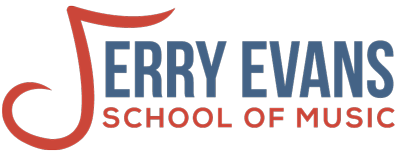Thanks for downloading this article, and I’m so excited that you are searching for music lessons! Music lessons make a tremendous impact on people’s lives, and I believe they will benefit you greatly. Music lessons help with increasing IQ, self-esteem, thinking skills, raising school grades, perseverance, decreasing anxiety or depression, and so much more. Through my own experience and the experiences of my musical family members, here are the top 5 mistakes to avoid when getting involved with music lessons. I hope this is helpful to you in your search for lessons!
1) Choosing the wrong instrument
Very often, I hear of parents ignoring the requests of their child, and the parent chooses the instrument for them. I do believe that common instruments like piano or guitar are great instruments to start on. However, it makes a monumental difference for a child if they can play the instrument they wanted to play from the start. Multiple times, I have heard parents say things like, “my son is too young to learn the drums”, or “there is no way my daughter will play the trumpet”, or “my child needs to start on the piano before they play what they want to play”. Unfortunately, it is disappointing to hear comments like that from parents because it can cause the child to lose interest in music very quickly. There are so many ways to help minimize the volume and sound of a child practicing the trumpet, drums, saxophone, or another louder instrument in the home. Extra rooms or a finished basement can be used, and there are other things that can be done with soundproofing and common materials in the home. Manufacturers now make special drum heads and cymbals that are extremely quiet. So, no matter what, it is generally best to go with the instrument that gets your child excited. If they are excited about their instrument, they will be more likely to continue, and then be more likely to then try a 2nd instrument in the future (and maybe the instrument you preferred in the first place).
2) Getting what you paid for
You know the old saying — “You got what you paid for!” The same often goes for music lessons. If you go out to find the cheapest price or bargain deal for a teacher, there is a chance you could get a lower quality of education, the school may not be as good, or the teacher may not be the best fit. The person that is charging a lower rate could very often have a lower price because they lack experience, education themselves, performing experience to back up what they teach, their Student Concerts or Rock Shows can’t compete with other schools, the lesson room is as small as a closet, the lesson is at their home, or they simply can’t compete with the quality of other programs around them. Sure, every once in awhile, there are good teachers out there who under-price themselves because they simply don’t know how much their services are really worth compared to the market, but that is definitely very rare. If someone has a cheap price, there could be a good reason for that.
On the flip side, the highest price does not mean that the teacher or school is the best. Sometimes they charge a high price because of name recognition, but their quality and experience is less than other teachers or schools. So take your time to look at reviews, ask questions, ask around, and have a trial lesson with a teacher to make sure that they have the quality needed.
3) Not finding someone who is qualified
You dove in for the cheapest price around, or because you saw a flashy advertisement. After taking lessons for 6 months, you start noticing that your child is playing music, and they may in fact be playing some great rock music on electric guitar. However, the teacher does not have high level musical training (like a music degree), has not had training in proper hand technique, and they can’t help your child develop their hands and coordination properly. Because of this, your child isn’t learning things like basic technique, doesn’t know basic scales, chords, or other fundamentals. This could limit your student’s potential. As another example, lets say you find a voice teacher to give your child voice lessons at the age of 5 years old. Years later, you find out that this was not the best idea for their long-term vocal health. (It is the general consensus of vocal professionals to wait on private voice lessons until the age of 7-9 years old.) So in the end, it’s wise to find out if the teacher has had training and has the wisdom to give your child a successful development process, while also helping them play the music they love to play.
4) Signing up with a teacher with the wrong approach
Picture you and your child walking into lessons each week looking forward to learning to play the instrument they have been wanting to play for some time. However, as the weeks go by, your child is not enjoying their lessons. The lessons are dedicated to only technique or music they don’t like, they aren’t getting into playing music, and if they do talk about playing music, it has nothing to do with the music they wanted to play. If this happens to you, it could be for 1 of 2 reasons. 1 – you need to give 4-5 months for your child to get their foundation so they can play the instrument correctly in the first place. (It takes a bit longer to learn how to start on a brass or woodwind instrument, so that can happen for sure.) 2 – It could be that the teacher is not approaching the lessons with the goal of playing real music, and you didn’t find out whether or not the teacher could competently help your student play music they enjoyed before you started lessons.
5) Having the wrong expectations
Let’s say you already started lessons with a qualified teacher. However, when you get home every day, getting your child to practice is almost impossible without a tantrum. In addition, your child doesn’t like to go to lessons and thinks it’s too hard. If this is you, this might be because you and your child came in with the wrong expectations. Here are some good expectations to have:
1) It takes 4-5 months to get through the challenging part of starting an instrument, and it can take grit and perseverance for a student to get through that before they start seeing major progress and see more of their goals achieved. So if it seems hard at first, make sure to be patient and let the process work itself out. It will get easier!
2) If your child doesn’t want to practice, welcome to being a parent of a music student. That is not a joke. Most students will not want to practice at one point or another, and that is very common. It takes discipline to stop playing with their toys, friends, or video games at home, and pick up an instrument and work on playing music. While playing music can be super fun and rewarding, learning an instrument takes work and intentionality, and students young or old will need their parents to be involved in making them practice.
When I grew up, I didn’t like to practice, and it was like pulling teeth at times. However, my parents continued to persevere, they made me practice and have lessons, and then when I was 13, my interest sparked much more with the bass guitar, and now I own a music school and have played in front of thousands. In addition, the years of playing piano from age 5-12 were incredibly valuable for my IQ, musical development, and personal development. Kudos to my parents for sticking with it in my early years.
3) Make sure you (the parent) are involved. Try to be there at your child’s lessons. Check in to make sure they are practicing, or if they are younger, practice with them to help them do it. The time you spend with your children is well spent, it will help them tremendously, and it will give you both wonderful memories for the rest of your lives.












